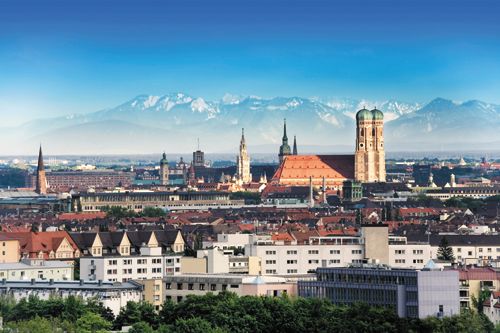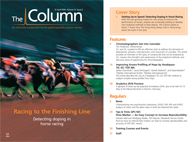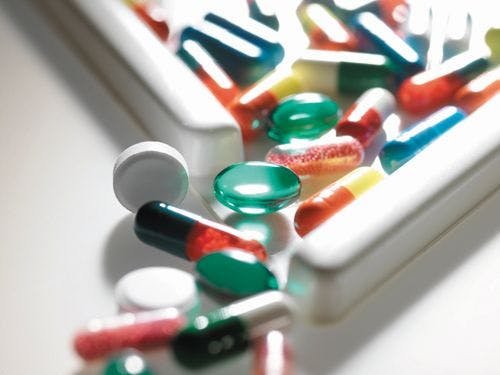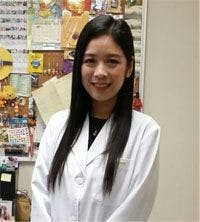Analytica 2016 Preview
A glimpse of what can be expected at Analytica 2016.
A glimpse of what can be expected at Analytica 2016.

From 10–13 May 2016 more than 1200 exhibitors will present their latest products and developments for laboratory operations at Analytica 2016 in Munich. The usual interesting analytical application areas, including food, environmental, (bio)pharmaceutical, plastics, genetic, and bioanalysis will be covered. However, this year’s events will also focus on the latest technologies for “Laboratory 4.0”. The exhibition is also rounded out by a unique programme of related events including Live Labs, the special show on Occupational Safety/Health and Safety in the Workplace, and the Analytica forum with focus days such as “Finance Day” or “Personalized Medicine”.
Analytica Conference 2016
The Analytica conference will take place at the ICM - International Congress Center Munich - from 10–12 May 2016 as part of the international trade fair Analytica. It is a scientific highlight of the fair and will cover the analytical chemistry and bioanalysis sectors -from nano-, food-, and environmental- analysis through to imaging and “omics” techniques, as well as trends in chromatography and spectroscopy. The speakers and chairs include experts such as Gary Hieftje from Indiana University Bloomington, USA; John Yates III from The Scripps Research Institute, USA; Luigi Mondello from the University of Messina in Italy; Peter Schoenmakers from HIMS, University of Amsterdam, the Netherlands; Andreas Manz from the KIST Europe Forschungsgesellschaft mbH, Germany; and Hans Maurer from Universität des Saarlandes, Germany.
Focusing on Energy and Raw Materials
The Analytica conference does more than give visitors a comprehensive overview of modern analysis. It also deals with socially relevant topics in which analysis techniques play a key role, which is why this year’s programme of events includes two symposia on strategically important raw materials.
“Resource Analysis” on the afternoon of Tuesday 10 May focuses on the analysis of high-tech metals and other inorganic raw materials. Kim H. Esbensen from the Geological Survey of Denmark and Greenland will hold the first lecture in this session. He is considered an expert in representative sampling, which is vitally important when examining ores and other heterogeneous materials.
Speakers at the full-day symposium on “Energy and Fuel” on Wednesday 11 May include representatives of the oil industry and scientists such as Frank Dorman from Pennsylvania State University. Together with colleagues at Penn State, Dorman detected drilling additives that are used in shaleâgas extraction in drinking water. The successful technique coupled mass spectrometry (MS) and chromatography. Lectures by industry representatives will focus on oil analysis: Frans G.A. Van den Berg from Shell Global Solutions International in the Netherlands will discuss the characterization of crude oil, and Pierre Giusti from TOTAL Refining and Chemicals in France will discuss the fingerprint analysis of crude oil and polymers.
From Proteomics to Foodomics
All four days of the Analytica conference will also address bioscientists with lectures on lab-on-a-chip, monitoring bioprocesses, and a number of other topics. There will also be several sessions on the new “omics” techniques. There will be a symposium titled “Omics Towards Personalized Medicine” on the afternoon of Tuesday 10 May. American proteome researcher Neil L. Kelleher from Northwestern University in Evanston, John Yates III from the Scripps Research Institute in La Jolla, and Jennifer Van Eyk from Cedars-Sinai Medical Center in Los Angeles, in addition to German and Canadian researchers, will shed light on the clinical uses of proteomics.
The session titled “Foodomics” on Tuesday morning will show that the suffix “omics” has also made its way into the sector for food analysis. Spanish food scientist Alejandro Cifuentes, who coined the term “foodomics”, will explain his choice of words in an introductory lecture. After that, there will be a presentation on pesticides, among other topics. The second symposium on food analysis on Tuesday afternoon is titled “Emerging Contaminants”, and it will cover pollutants such as pyrrolizidine alkaloids, mycotoxin metabolites, and perfluoroalkylated substances, which have received little attention until now.
News in Diagnostics and Drug Analysis
This year’s diagnostics sessions will concentrate on common illnesses such as cancer. Among other things, “Liquid Profiling/Liquid Biopsy” on the morning of the first day of the fair will be devoted to circulating tumour DNA, tumour markers, and detecting cancer cells in blood.
The session on clinical and forensic toxicology by German “designerâdrug detective” Hans Maurer from the University of Saarland is a must for all drug analysts. On Wednesday morning, Maurer and other speakers from the United States, Sweden, Finland, Great Britain, and Spain will concentrate on MS drug detection. Kara L. Lynch from the University of California in San Francisco will discuss special drug screening techniques.
A Peek into the Nanoworld
Analyzing nanoparticles is another focal point of the Analytica conference. On Wednesday 11 May, Lihua Zhang from the Chinese Academy of Sciences will present functionalized nanoparticles for sample preparation in protein analysis. David C. Muddiman from North Carolina State University will discuss molecular imaging, which combines microscopy with MS and can therefore provide images as well as chemical information.
The symposia mentioned in this introduction are just a selection from the extensive programme of events put together by Germany’s three leading scientific associations - the German Chemical Society (GDCh), the Society for Biochemistry and Molecular Biology (GBM), and the German Society for Clinical Chemistry and Laboratory Medicine (DGKL). There will also be lectures on analyzing sewage, electro-analysis, separation techniques, and general topics, such as laboratory management and data analysis. The entire programme of events is available on-line at www.analytica.de/en/conference or at www.gdch.de/analyticaconf2016. Participating in the analytica conference is free of charge for all visitors attending the fair.
Susanne Grödl
Exhibition Director analytica
E-mail: info@messe-muenchen.de
Website: www.analytica.de

New TRC Facility Accelerates Innovation and Delivery
April 25th 2025We’ve expanded our capabilities with a state-of-the-art, 200,000 sq ft TRC facility in Toronto, completed in 2024 and staffed by over 100 PhD- and MSc-level scientists. This investment enables the development of more innovative compounds, a broader catalogue and custom offering, and streamlined operations for faster delivery. • Our extensive range of over 100,000 high-quality research chemicals—including APIs, metabolites, and impurities in both native and stable isotope-labelled forms—provides essential tools for uncovering molecular disease mechanisms and exploring new opportunities for therapeutic intervention.
New Guide: Characterising Impurity Standards – What Defines “Good Enough?”
April 25th 2025Impurity reference standards (IRSs) are essential for accurately identifying and quantifying impurities in pharmaceutical development and manufacturing. Yet, with limited regulatory guidance on how much characterisation is truly required for different applications, selecting the right standard can be challenging. To help, LGC has developed a new interactive multimedia guide, packed with expert insights to support your decision-making and give you greater confidence when choosing the right IRS for your specific needs.

.png&w=3840&q=75)

.png&w=3840&q=75)



.png&w=3840&q=75)



.png&w=3840&q=75)











